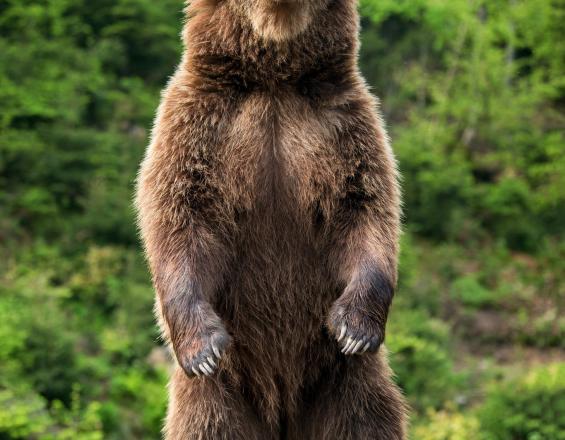COREHABS to BearConnect: Securing wilderness in Eastern Europe

The Romanian portion of the Carpathian Mountains holds the largest continuous forest ecosystems in Europe, harbors many well-preserved natural habitats, and is home to large herbivores and carnivores, including brown bear. A total of 30.2% of the national territory is covered by forest, including virgin forests and ancient beech forests. However these sites are disconnected.
The COREHABS initiative (Ecological corridors for habitats and species in Romania) is providing corridor modelling as a decision support tool for stakeholders, giving them the opportunity to develop infrastructure while considering the ecological measures necessary to ensure the long-term viability of species and habitats. COREHABS and other research projects are investigating the degree to which existing ecological networks ensure landscape connectivity, and are providing practical recommendations for integrating connectivity conservation into national, regional, local, rural and urban planning.
Context
Challenges addressed
Location
Impacts
COREHABS developed an efficient mechanism for identification and assessment of ecological corridors to assist local planning and implementation of a national ecological network for conservation. Romania is on track to protect a coherent ecological network of protected areas and ecological corridors, which will allow wildlife populations to interbreed, improving long-term genetic viability and climate change resilience.



